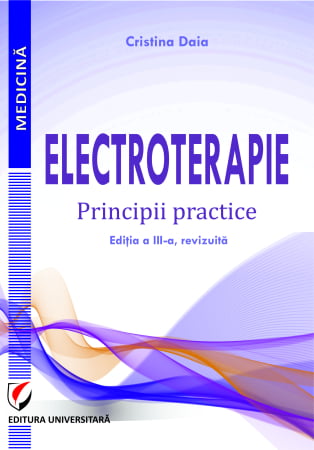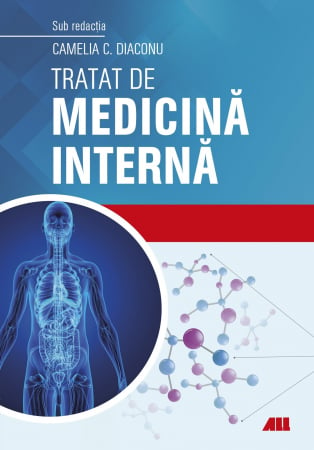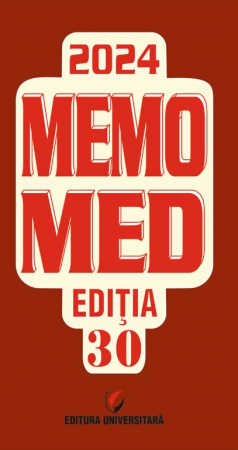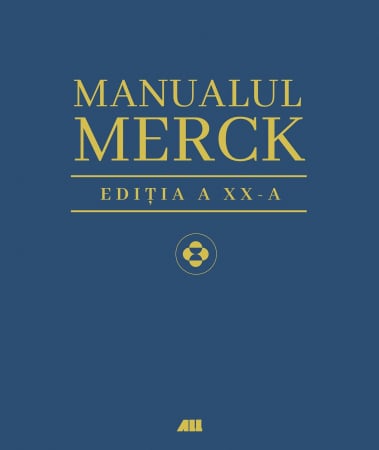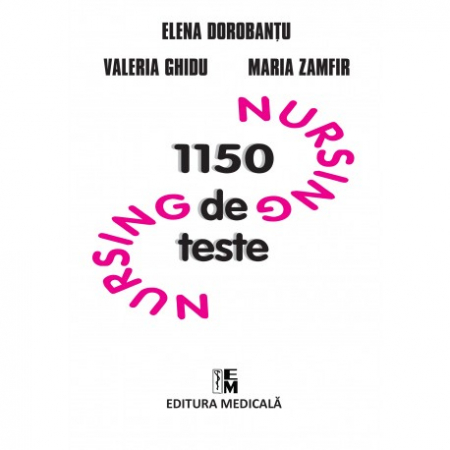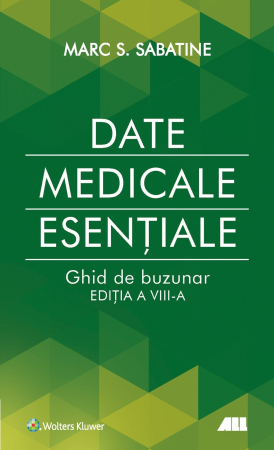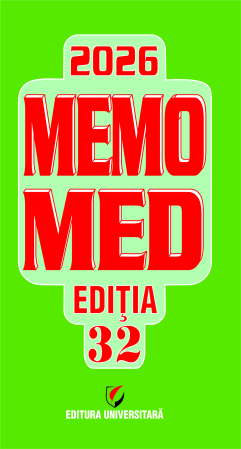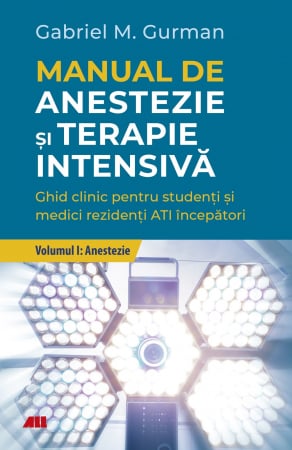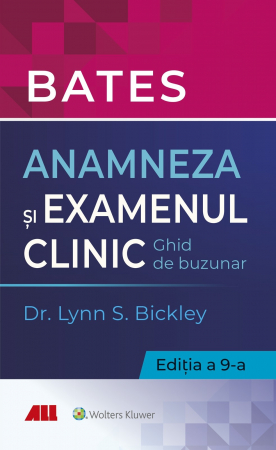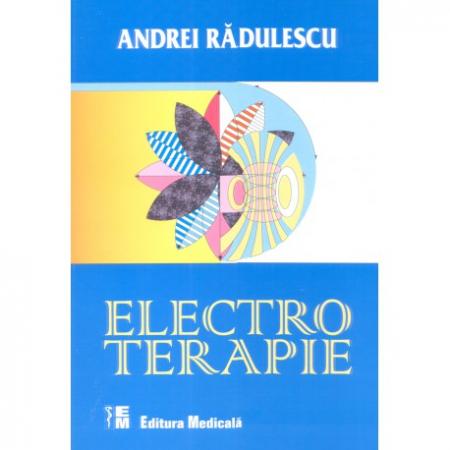Manuscript proposals: [email protected] / 0745 204 115 //// Tracking orders Individuals / Sales: 0745 200 357 / Orders Legal entities: 0721 722 783
ISBN: 978-973-749-681-2
Publisher year: 2009
Edition: 1
Pages: 384
Publisher: Editura Universitară
Author: Eugen Avram - Coordonator
Product Code:
9789737496812
Do you need help?
0745 200 357
- Description
- Download (1)
- Authors
- Content
- More details
- Reviews (0)
Understanding how the brain works has shifted from a reductionist approach, in which various particular aspects of brain structure and functionality have been experimentally analyzed to interdisciplinary or transdisciplinary approaches. The study units or levels of analysis in neuroscience in order of complexity are: molecular neuroscience, cellular neuroscience, systems neuroscience, behavioral neuroscience, cognitive neuroscience. Neuropsychology is the study of how the properties of the brain allow behavior to develop. It studies the relationships between brain function and behavior and especially changes in thinking and behavior that relate to the structural or cognitive integrity of the brain. Thus, neuropsychology is a way to study the brain by examining the behavior it produces. The main objective of this paper is to promote new acquisitions in the field of neuroscience. The studies in this volume cover issues of current interest.
-
Neuropsychology - Brain and Functionality
Download
EUGEN AVRAM (coordinator) is a University Lecturer. dr .; holder in the Department of Psychology / P.S.E. of the University of Bucharest. He has published over 30 studies and researches in specialized journals, over 20 chapters in collective volumes. He is the coordinator of the volumes (selective): Organizational-managerial psychology. Current trends, Polirom, Iasi (2008, co-editor: Cary L. Cooper), Psychology in modern organizations (coord., 2008), Organizational trust (co-author: Pamela Shockley-Zalabak, 2008). Co-author: Development of management in health organizations - Excellence in neurosurgery services, University Publishing House, Bucharest, 2007 and Modern Management in health organizations. Perspectives in neurosurgery services, Medical Publishing House, Bucharest, 2009 (last two works in collaboration with A. V. Ciurea and V. Gh. Ciubotaru). Author: Personality Psychology. Architecture and dimensions (2009, University Publishing House, Bucharest). He is a clinical psychologist and performs health research activities at the Emergency Clinical Hospital "Bagdasar-Arseni".
BOGDAN BALANESCU is a student at the UMF Carol Davila Faculty of Medicine, Bucharest. Areas of interest include stereotaxic and functional neurosurgery, clinical neuroelectrophysiology and intraoperative applicability. He graduated a series of courses in electroneuromyography, evoked potentials, magnetic stimulation. He followed training courses in Germany, Hannover on stereotaxic and functional procedures under the guidance of Prof. Joachim Krauss September 2008, under the guidance of Prof. Madjid Samii, August 2008.
MIHAELA CHRAIF is an assistant professor, doctoral student of the Doctoral School at the Faculty of Psychology and Educational Sciences, University of Bucharest. He is an autonomous psychologist specialized in work and transport psychology, under supervision in the field of educational psychology and services. His area of professional interest extends over a wide range due to his dual specialization (finance-banking and psychology): finance, banking, capital markets, labor psychology, psychology of cognitive mechanisms, experimental psychology applied in research of cognitive mechanisms and transport.
JEAN CIUREA is a primary neurosurgeon, doctor of medical sciences, head of section V (Stereotaxic and Functional Neurosurgery) at the Bagdasar-Arseni Emergency Clinical Hospital, Bucharest; member of the Executive Committee of the European Society of Stereotactic and Functional Neurosurgery, member of the World Society of Neurochemistry.
ALEXANDRU DUMITRESCU is a student at the Faculty of Psychology, Department of Special Psychopedagogy - University of Bucharest.
MIHAI GOLU is a university professor. PhD, tenured at "Spiru Haret" University and associate professor at the Faculty of Psychology of the University of Bucharest and "Titu Maiorescu" University. In 1973 he completed an advanced study internship at Carnegie-Mellon University in the United States, specializing in cyber psychology and information psychology. His editorial activity is a fundamental landmark in several fields of psychology: neuropsychology, neurocybernetics, experimental psychology, general psychology, personality psychology, etc. He held the position of President of the Romanian Association of Psychologists (1990-2001); Minister of Education (1991-1992); Minister of Culture (1992-1993); President of the National Commission of Romania for UNESCO (1990-1994); Active member of the New York Academy of Sciences (1995); included in many biographical encyclopedias including: "Man of the Year 1992" by the Cambridge International Biographical Center and "Man of the Year 2002" by the American Biographical Institute.
GEORGIANA ICHIMESCU is a student at the Faculty of Psychology, Department of Special Psychopedagogy - University of Bucharest.
ALEXANDRU IORDAN is a PhD assistant at the Department of Special Psychopedagogy - University of Bucharest. His scientific and editorial activity focuses on the fields of cognitive neuroscience, health and disability.
ADINA LEASU is a graduate of the University of Bucharest, Faculty of Psychology and Educational Sciences, Department of Psychology. She works as an assistant psychologist for people with severe learning disabilities, epilepsy, autism and other disorders associated with ClearWater Care, Colchester, UK. She is pursuing a master's degree in Cognitive Neuropsychology and is a member of the British Psychological Association. He has experience in neurorehabilitation for people with head trauma or stroke at the Headway Day Center, Colchester, UK.
IOANA MAIORESCU is a psychologist, a graduate of the psychology department at the University of Bucharest. He is also an architect. Her current interests gravitate in the area of clinical psychology, being involved in research projects and editorial projects.
MARIA VERONNICA MORCOV chief psychologist at the Neuro Recovery Clinical Medical Center Psychomotor for Children „Dr. N. Robanescu ”. He completed training courses at the Ekim-Istanbul clinic, Turkey (2002), dolphin therapy internship, Eilat - Israel (2002), ABA therapy training with a supervisor from Israel (2005-2007), followed a master's degree in cognitive psychodiagnosis and counseling psychological. He is the author of several works in the field of neuropsychic rehabilitation.
LILIANA I. PADURE is the manager of the Clinical Medical Center for Neuropsychomotor Recovery for Children "Dr. N. Robanescu" in Bucharest, and Associate Professor in the M6 Department, Discipline of Neuropsychomotor Recovery of the "Carol Davila" University of Medicine. He followed many internships abroad. Published books: 1. Botulinum toxin in the treatment of spasticity in children (sole author, 2003); 2. Management of spasticity in children (sole author, 2007) (both at Carol Davila University Publishing House, Bucharest); 3. Recovery treatment in vertebral static disorders in children (L. Padure, C.F. Ion, M. Dumangiu); 4. Team intervention in the recovery of sequelae after T.C.C. in children (L. Padure, F.C. Ion, V. Morcov, 2008) (all at the “Carol Davila” University Publishing House); 5. Clinical balance in child recovery (sole author, 2008, University Publishing House, Bucharest; 6. Compendium of rehabilitation for children and the elderly (G. Onose, L. Padure, I. Angelescu, C. Chendreanu, “Carol Davila” University Publishing House ), etc.
ALIN-DUMITRU RASINA is a primary neurosurgeon, doctoral student, scientific researcher in the Stereotaxic and Functional Neurosurgery Department of Bagsadar-Arseni Hospital in Bucharest. He attended training courses and training courses in Lyon (1999-2000), Paris (2003-2004), Salzburg (2008).
ANDREEA ROMAN is a student at the Faculty of Medicine UMF "Carol Davila", Bucharest.
ANDREI STANCU is a psychologist, graduate of the psychology department at the University of Bucharest. He works in the field of psychological studies and market analysis. His current interests gravitate in the area of advertising psychology, buyer psychology and marketing, being involved in application projects, research and editorial projects.
ALEXANDRU TASCU is a doctor of medical sciences, primary neurosurgeon in section I Neurosurgery of the Bagdasar-Arseni Clinical Hospital, Bucharest. He is the head of works at the Department of Child Neurosurgery - UMF "Carol Davila", Bucharest.
GABRIEL VACARIU is a lecturer at the Faculty of Philosophy (University of Bucharest). He studied cognition science at Oxford University (Georgescu Scholarship included in Soros scholarships) and at various universities such as New York University, University of South Australia or University of New South Wales (Australia). Webpage: http // www.ub-filosofie.ro / gabrielvacariu.
MIHAI VACARIU is a specialist in market research and advertising. It followed forms of training similar to those mentioned in Gabriel Vacariu.
LEON ZAGREAN is a professor at the Department of Physiology and Director of the Center of Excellence in Neurosciences at the "Carol Davila" University of Medicine and Pharmacy in Bucharest.
BOGDAN BALANESCU is a student at the UMF Carol Davila Faculty of Medicine, Bucharest. Areas of interest include stereotaxic and functional neurosurgery, clinical neuroelectrophysiology and intraoperative applicability. He graduated a series of courses in electroneuromyography, evoked potentials, magnetic stimulation. He followed training courses in Germany, Hannover on stereotaxic and functional procedures under the guidance of Prof. Joachim Krauss September 2008, under the guidance of Prof. Madjid Samii, August 2008.
MIHAELA CHRAIF is an assistant professor, doctoral student of the Doctoral School at the Faculty of Psychology and Educational Sciences, University of Bucharest. He is an autonomous psychologist specialized in work and transport psychology, under supervision in the field of educational psychology and services. His area of professional interest extends over a wide range due to his dual specialization (finance-banking and psychology): finance, banking, capital markets, labor psychology, psychology of cognitive mechanisms, experimental psychology applied in research of cognitive mechanisms and transport.
JEAN CIUREA is a primary neurosurgeon, doctor of medical sciences, head of section V (Stereotaxic and Functional Neurosurgery) at the Bagdasar-Arseni Emergency Clinical Hospital, Bucharest; member of the Executive Committee of the European Society of Stereotactic and Functional Neurosurgery, member of the World Society of Neurochemistry.
ALEXANDRU DUMITRESCU is a student at the Faculty of Psychology, Department of Special Psychopedagogy - University of Bucharest.
MIHAI GOLU is a university professor. PhD, tenured at "Spiru Haret" University and associate professor at the Faculty of Psychology of the University of Bucharest and "Titu Maiorescu" University. In 1973 he completed an advanced study internship at Carnegie-Mellon University in the United States, specializing in cyber psychology and information psychology. His editorial activity is a fundamental landmark in several fields of psychology: neuropsychology, neurocybernetics, experimental psychology, general psychology, personality psychology, etc. He held the position of President of the Romanian Association of Psychologists (1990-2001); Minister of Education (1991-1992); Minister of Culture (1992-1993); President of the National Commission of Romania for UNESCO (1990-1994); Active member of the New York Academy of Sciences (1995); included in many biographical encyclopedias including: "Man of the Year 1992" by the Cambridge International Biographical Center and "Man of the Year 2002" by the American Biographical Institute.
GEORGIANA ICHIMESCU is a student at the Faculty of Psychology, Department of Special Psychopedagogy - University of Bucharest.
ALEXANDRU IORDAN is a PhD assistant at the Department of Special Psychopedagogy - University of Bucharest. His scientific and editorial activity focuses on the fields of cognitive neuroscience, health and disability.
ADINA LEASU is a graduate of the University of Bucharest, Faculty of Psychology and Educational Sciences, Department of Psychology. She works as an assistant psychologist for people with severe learning disabilities, epilepsy, autism and other disorders associated with ClearWater Care, Colchester, UK. She is pursuing a master's degree in Cognitive Neuropsychology and is a member of the British Psychological Association. He has experience in neurorehabilitation for people with head trauma or stroke at the Headway Day Center, Colchester, UK.
IOANA MAIORESCU is a psychologist, a graduate of the psychology department at the University of Bucharest. He is also an architect. Her current interests gravitate in the area of clinical psychology, being involved in research projects and editorial projects.
MARIA VERONNICA MORCOV chief psychologist at the Neuro Recovery Clinical Medical Center Psychomotor for Children „Dr. N. Robanescu ”. He completed training courses at the Ekim-Istanbul clinic, Turkey (2002), dolphin therapy internship, Eilat - Israel (2002), ABA therapy training with a supervisor from Israel (2005-2007), followed a master's degree in cognitive psychodiagnosis and counseling psychological. He is the author of several works in the field of neuropsychic rehabilitation.
LILIANA I. PADURE is the manager of the Clinical Medical Center for Neuropsychomotor Recovery for Children "Dr. N. Robanescu" in Bucharest, and Associate Professor in the M6 Department, Discipline of Neuropsychomotor Recovery of the "Carol Davila" University of Medicine. He followed many internships abroad. Published books: 1. Botulinum toxin in the treatment of spasticity in children (sole author, 2003); 2. Management of spasticity in children (sole author, 2007) (both at Carol Davila University Publishing House, Bucharest); 3. Recovery treatment in vertebral static disorders in children (L. Padure, C.F. Ion, M. Dumangiu); 4. Team intervention in the recovery of sequelae after T.C.C. in children (L. Padure, F.C. Ion, V. Morcov, 2008) (all at the “Carol Davila” University Publishing House); 5. Clinical balance in child recovery (sole author, 2008, University Publishing House, Bucharest; 6. Compendium of rehabilitation for children and the elderly (G. Onose, L. Padure, I. Angelescu, C. Chendreanu, “Carol Davila” University Publishing House ), etc.
ALIN-DUMITRU RASINA is a primary neurosurgeon, doctoral student, scientific researcher in the Stereotaxic and Functional Neurosurgery Department of Bagsadar-Arseni Hospital in Bucharest. He attended training courses and training courses in Lyon (1999-2000), Paris (2003-2004), Salzburg (2008).
ANDREEA ROMAN is a student at the Faculty of Medicine UMF "Carol Davila", Bucharest.
ANDREI STANCU is a psychologist, graduate of the psychology department at the University of Bucharest. He works in the field of psychological studies and market analysis. His current interests gravitate in the area of advertising psychology, buyer psychology and marketing, being involved in application projects, research and editorial projects.
ALEXANDRU TASCU is a doctor of medical sciences, primary neurosurgeon in section I Neurosurgery of the Bagdasar-Arseni Clinical Hospital, Bucharest. He is the head of works at the Department of Child Neurosurgery - UMF "Carol Davila", Bucharest.
GABRIEL VACARIU is a lecturer at the Faculty of Philosophy (University of Bucharest). He studied cognition science at Oxford University (Georgescu Scholarship included in Soros scholarships) and at various universities such as New York University, University of South Australia or University of New South Wales (Australia). Webpage: http // www.ub-filosofie.ro / gabrielvacariu.
MIHAI VACARIU is a specialist in market research and advertising. It followed forms of training similar to those mentioned in Gabriel Vacariu.
LEON ZAGREAN is a professor at the Department of Physiology and Director of the Center of Excellence in Neurosciences at the "Carol Davila" University of Medicine and Pharmacy in Bucharest.
PART I
BRAIN AND PSYCHOLOGY
Chapter 1
Mihai Golu
General principles of the structural and functional organization of the human brain / 11
Chapter 2
Gabriel Vacariu, Mihai Vacariu, Leon Zagrean
Cognitive neuroscience and the mind-brain problem / 35
Chapter 3
Alexandru Tascu
The evolution of conceptions about the brain and the psyche / 55
Chapter 4
Eugen Avram, Alexandru Dumitrescu, Georgiana Ichimescu, Andreea Roman
Nervous systems and adaptive functions / 79
Chapter 5
Andrei Stancu
Flashbulb memory formation dynamics / 105
Chapter 6
Mihaela Chraif
Stereoscopic processing of visual stimuli / 139
Chapter 7
Alexandru D. Iordan
Executive dysfunction / 165
PART II
EVALUATION AND THERAPY OF NEUROPSYCHIC FUNCTIONALITY
Chapter 8
Eugen Avram
Neuropsychological evaluation in epilepsy / 199
Chapter 9
Adina Leasu
Computerized neuropsychological testing / 235
Chapter 10
Alexandru Tascu, Adina Leasu
Neuropsychological assessment and biofeedback / 265
Chapter 11
Liliana I. Padure, Maria V. Morcov
Craniocerebral traumas in children - diagnosis and neuropsychological intervention / 287
Chapter 12
Alin D. Rasina
Diagnostic and therapeutic approaches to spasticity / 303
Chapter 13
Jean Ciurea, Bogdan Balanescu
News in the neurosurgical treatment of movement disorders / 331
Chapter 14
Ioana Maiorescu
Hydrocephalus and declining quality of life / 347
BRAIN AND PSYCHOLOGY
Chapter 1
Mihai Golu
General principles of the structural and functional organization of the human brain / 11
Chapter 2
Gabriel Vacariu, Mihai Vacariu, Leon Zagrean
Cognitive neuroscience and the mind-brain problem / 35
Chapter 3
Alexandru Tascu
The evolution of conceptions about the brain and the psyche / 55
Chapter 4
Eugen Avram, Alexandru Dumitrescu, Georgiana Ichimescu, Andreea Roman
Nervous systems and adaptive functions / 79
Chapter 5
Andrei Stancu
Flashbulb memory formation dynamics / 105
Chapter 6
Mihaela Chraif
Stereoscopic processing of visual stimuli / 139
Chapter 7
Alexandru D. Iordan
Executive dysfunction / 165
PART II
EVALUATION AND THERAPY OF NEUROPSYCHIC FUNCTIONALITY
Chapter 8
Eugen Avram
Neuropsychological evaluation in epilepsy / 199
Chapter 9
Adina Leasu
Computerized neuropsychological testing / 235
Chapter 10
Alexandru Tascu, Adina Leasu
Neuropsychological assessment and biofeedback / 265
Chapter 11
Liliana I. Padure, Maria V. Morcov
Craniocerebral traumas in children - diagnosis and neuropsychological intervention / 287
Chapter 12
Alin D. Rasina
Diagnostic and therapeutic approaches to spasticity / 303
Chapter 13
Jean Ciurea, Bogdan Balanescu
News in the neurosurgical treatment of movement disorders / 331
Chapter 14
Ioana Maiorescu
Hydrocephalus and declining quality of life / 347
The brain contains billions of cells and an infinite number of possible connections between individual neurons, allowing the exchange of complex information. The amazing range of connections determines the activity of the brain. Understanding this network of neurons is the main target of neuropsychology.
The neuroscience revolution emerged when scientists realized that the only hope for understanding brain functionality is the interdisciplinary approach, a combination of traditional approaches that leads to a new synthesis / perspective.
Understanding how the brain works has shifted from a reductionist approach, in which various particular aspects of brain structure and functionality have been experimentally analyzed to interdisciplinary or transdisciplinary approaches. The study units or levels of analysis in neuroscience in order of complexity are: molecular neuroscience, cellular neuroscience, systems neuroscience, behavioral neuroscience, cognitive neuroscience.
Neuropsychology is the study of how the properties of the brain allow behavior to develop. It studies the relationships between brain function and behavior and especially changes in thinking and behavior that relate to the structural or cognitive integrity of the brain. Thus, neuropsychology is a way to study the brain by examining the behavior it produces.
Neuropsychology developed amazingly in the 1970s and 1990s, being the fastest growing subspecialty of psychology. Neuropsychologists conduct studies of brain-behavioral relationships and are involved in creating and developing technologies to participate in the treatment of brain diseases. They are involved in improving the lives of patients, working not only in medical units, but also in universities, research institutions, correction, the armed forces and private practice.
The main objective of this paper is to promote new acquisitions in the field of neuroscience. The studies in this volume cover issues of current interest. All chapters highlight modern, theoretical or applied perspectives, combining conceptual aspects with practical ones. The paper manages to bring together the contributions of university teachers, scientific researchers and practitioners from prestigious institutions of clinical practice in our country.
Readers, students, practitioners, have the opportunity to expand their field of knowledge and to use informational structures in the realization of academic projects and, especially, of projects designed to improve the lives of clients.
The neuroscience revolution emerged when scientists realized that the only hope for understanding brain functionality is the interdisciplinary approach, a combination of traditional approaches that leads to a new synthesis / perspective.
Understanding how the brain works has shifted from a reductionist approach, in which various particular aspects of brain structure and functionality have been experimentally analyzed to interdisciplinary or transdisciplinary approaches. The study units or levels of analysis in neuroscience in order of complexity are: molecular neuroscience, cellular neuroscience, systems neuroscience, behavioral neuroscience, cognitive neuroscience.
Neuropsychology is the study of how the properties of the brain allow behavior to develop. It studies the relationships between brain function and behavior and especially changes in thinking and behavior that relate to the structural or cognitive integrity of the brain. Thus, neuropsychology is a way to study the brain by examining the behavior it produces.
Neuropsychology developed amazingly in the 1970s and 1990s, being the fastest growing subspecialty of psychology. Neuropsychologists conduct studies of brain-behavioral relationships and are involved in creating and developing technologies to participate in the treatment of brain diseases. They are involved in improving the lives of patients, working not only in medical units, but also in universities, research institutions, correction, the armed forces and private practice.
The main objective of this paper is to promote new acquisitions in the field of neuroscience. The studies in this volume cover issues of current interest. All chapters highlight modern, theoretical or applied perspectives, combining conceptual aspects with practical ones. The paper manages to bring together the contributions of university teachers, scientific researchers and practitioners from prestigious institutions of clinical practice in our country.
Readers, students, practitioners, have the opportunity to expand their field of knowledge and to use informational structures in the realization of academic projects and, especially, of projects designed to improve the lives of clients.
If you want to express your opinion about this product you can add a review.
write a review

6359.png)
![Neuropsychology - Brain and Functionality [1] Neuropsychology - Brain and Functionality [1]](https://gomagcdn.ro/domains/editurauniversitara.ro/files/product/large/neuropsihologie-creier-si-functionalitate-079761.jpg)
